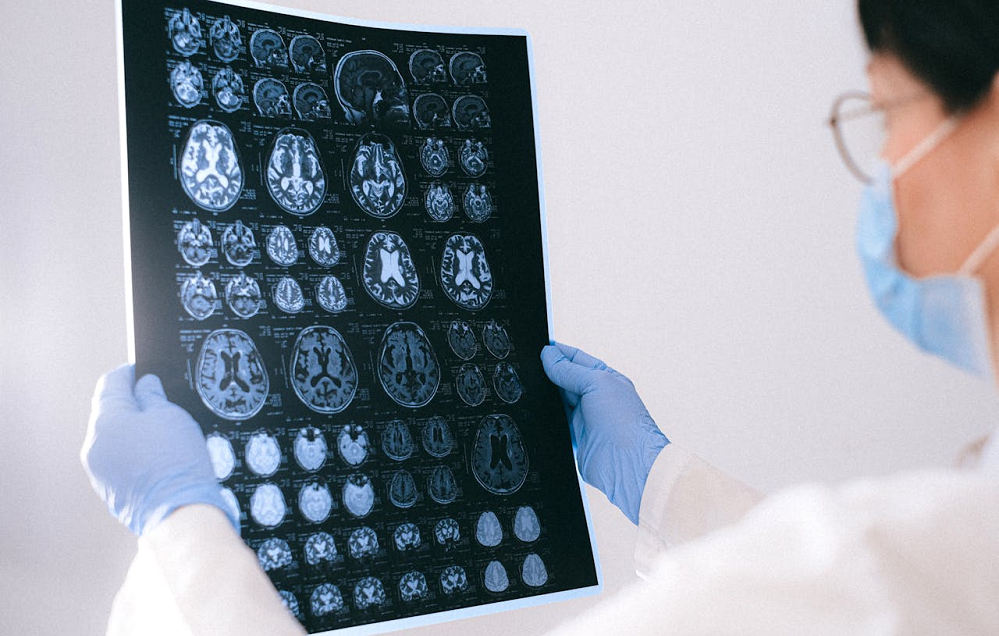Reviews
All About Alzheimer’s Disease: A Detailed Guide

Alzheimer’s disease is a progressive brain disorder that gradually destroys memory, reasoning skills, and the ability to do daily tasks. As the major cause of dementia, it is becoming a bigger concern for individuals, families, and healthcare systems, especially as the population ages.
This guide provides a comprehensive look at Alzheimer’s disease, including its symptoms, causes, diagnosis, and potential therapies, providing vital information for individuals, families, and caregivers managing this complicated condition.
What Is Alzheimer’s Disease?
Alzheimer’s disease is a type of dementia that affects memory, cognition, language, and behavior. It is a degenerative disorder, which means it becomes worse with time. During the early stages, patients may experience slight confusion or forgetfulness. As the disease worsens over time, people lose the ability to respond to their surroundings and control their movements.
While there is no cure for Alzheimer’s disease, medicines and lifestyle adjustments can help slow its course and improve the quality of life for individuals who are affected.
Symptoms of Alzheimer’s Disease
Symptoms of Alzheimer’s typically develop slowly and worsen over time. Early signs are often subtle and may be mistaken for normal aging. Common symptoms include:
- Memory loss that disrupts daily life, especially forgetting recently learned information
- Difficulty performing familiar tasks, such as cooking or managing finances
- Problems with language, including trouble finding words or following conversations
- Disorientation in time and place
- Poor or decreased judgment, such as giving away large sums of money
- Mood and personality changes, including confusion, suspicion, depression, or anxiety
- Withdrawal from social activities or hobbies
As the disease advances, individuals may require full-time care and assistance with basic activities like dressing, bathing, and eating.
What Causes Alzheimer’s?
The exact cause of Alzheimer’s disease is not fully understood, but scientists believe it results from a combination of genetic, environmental, and lifestyle factors. Two hallmark abnormalities in the brains of people with Alzheimer’s are:
- Plaques: Clumps of a protein called beta-amyloid that accumulate between brain cells
- Tangles: Twisted strands of another protein called tau that build up inside brain cells
These changes disrupt communication between neurons, ultimately leading to cell death and brain shrinkage.
Risk factors for developing Alzheimer’s include:
- Age: Risk increases significantly after age 65
- Family history and genetics: Certain genes, such as APOE-e4, can increase risk
- Cardiovascular health: High blood pressure, diabetes, obesity, and smoking can contribute
- Head trauma: Repeated or severe head injuries may increase risk
- Lifestyle factors: Lack of exercise, poor diet, social isolation, and low cognitive engagement
How Is Alzheimer’s Diagnosed?
There is no single test to diagnose Alzheimer’s disease. Instead, doctors use a combination of assessments to determine the presence of dementia and rule out other possible causes. These assessments may include:
- Medical history and physical examination
- Neurological testing to evaluate reflexes, coordination, and balance
- Cognitive tests to measure memory, language, attention, and problem-solving
- Brain imaging, such as MRI or CT scans, to detect structural changes
- Laboratory tests to rule out vitamin deficiencies or thyroid disorders
In some cases, a more advanced imaging technique called PET scanning may be used to identify abnormal levels of beta-amyloid in the brain.
If you or a loved one is concerned about memory loss or changes in thinking skills, it’s important to speak with a healthcare professional. Nurse practitioners trained in adult-gerontology can play a pivotal role in early detection, ongoing care, and supporting families. Those with AGPCNP certification are uniquely qualified to manage the complex needs of older adults with cognitive disorders.

Treatment Options
While there is no cure for Alzheimer’s, several treatments can help manage symptoms and improve quality of life. The primary approaches include:
1. Medications
- Cholinesterase inhibitors (such as donepezil, rivastigmine, and galantamine) can help improve communication between nerve cells in the brain.
- Memantine, another drug, works by regulating glutamate, a brain chemical involved in learning and memory.
- Newer drugs such as lecanemab have recently been approved by the FDA and target the underlying biology of the disease by reducing beta-amyloid plaques.
2. Lifestyle Interventions
- Cognitive stimulation, including puzzles, reading, and social engagement, can help slow mental decline.
- Exercise improves blood flow to the brain and may delay the onset of symptoms.
- Dietary changes, such as the Mediterranean or MIND diets, may support brain health.
3. Supportive Therapies
- Occupational therapy can teach adaptive strategies to maintain independence longer.
- Counseling and support groups offer emotional relief for both patients and caregivers.
Living with Alzheimer’s
Being diagnosed with Alzheimer’s can be overwhelming and scary, but with the right care, many people can live happy lives for years after their diagnosis. Creating a long-term care plan, sticking to a scheduled daily routine, and remaining socially active are all important steps.
Caregivers have an important part in the health of Alzheimer’s patients. Resources such as the Alzheimer’s Association and local support groups can help families in managing the difficulties of caregiving.
Help is Available
Alzheimer’s disease is a life-altering disease that affects not just people suffering from it, but also their loved ones. While much about the disease is yet to be discovered, breakthroughs in early detection and treatment provide hope. Staying educated, getting professional advice, and planning ahead are all key stages in disease management. Understanding Alzheimer’s is the first step toward reducing its impact and ensuring that those affected receive the compassion, support, and care they need.

-

 World3 days ago
World3 days agoEthiopian volcano erupts for first time in thousands of years
-

 Legal1 week ago
Legal1 week agoMichigan man JD Vance sentenced to 2 years for threatening Trump and JD Vance
-

 Legal1 week ago
Legal1 week agoWoman in critical condition after being set on fire on Chicago train
-

 World1 week ago
World1 week agoHurricane Melissa registered 252 mph wind gust, breaking global record
-

 Legal1 week ago
Legal1 week ago1 dead, 2 injured in shooting at Dallas Walmart parking lot
-

 Legal6 days ago
Legal6 days agoSuspect in San Diego stabbing shot by authorities after fleeing into Mexico
-

 Health6 days ago
Health6 days agoMarburg virus outbreak in Ethiopia grows to 6 confirmed cases
-

 World6 days ago
World6 days agoU.S. sanctions companies and vessels accused of aiding Iranian military oil sales




